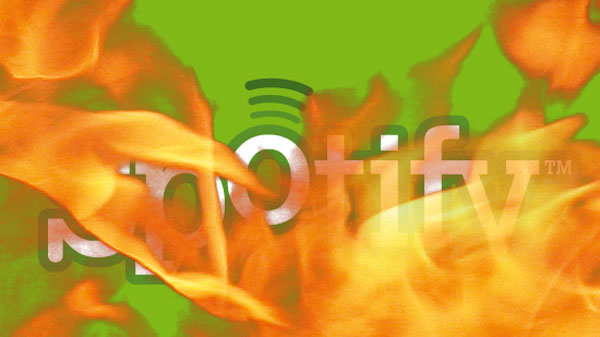Spotify is part of the solution, not the problem
Don't set it on fire just to watch it burn

Like most children of the '90s, I knew a girl who was a teenage music pirate.
She told me once that not much matched the feeling of infinite possibility coursing through her as she realised she had the entire musical spectrum at her fingertips. On Napster and its ilk, she could search for and listen to literally any song that existed in a matter of minutes.
It felt like magic.
Before she got a write-capable CD drive, she used to hook up a cassette player and physically tape songs she'd downloaded using the computer's audio-out. The quality was terrible but she said she didn't mind - and nor did I. It gave the mixtapes that she made me a lo-fi vibe that I dug. It felt crafty and clever and lent her creations a certain je ne sais quoi that mine never matched.
She's not proud of pirating all those tracks now, but she was a kid. Like all of us, she had a vague idea that it wasn't entirely on the up-and-up, but she didn't really know. And back then, accessing music that we actually wanted to listen to was hard - in the Midlands in the late '90s, the radio options were abysmal and none of us had money to spend on CDs.
An album was £12 a go, which feels more like a million when you're making £2 a week cleaning your dad's car and sometimes getting paid to iron shirts for him at a rate of 10p a shirt. I averaged about 20p an hour and felt like I'd been down the pits.
Child labour
Yes, kids. Times were tough. There wasn't much in the way of quality internet radio. There was no streaming of albums on music sites before they launched. There was no Spotify, Rdio, Pandora, YouTube or Soundcloud. Aside from your piratical friend, you had Radio One, some truly horrendous local radio, the NME and and your friend's older brother's CD collection to expand your musical horizons.
Get daily insight, inspiration and deals in your inbox
Sign up for breaking news, reviews, opinion, top tech deals, and more.
Nowadays, you can get all that and then some from Spotify, Rdio, Pandora, Deezer or whatever your platform of choice is alone.
For 10 pounds (or dollars) a month, you can have the spine-tinglingly vast library of Napster, the shared listening experience of radio, the friends' recommendations and the editorial nous of a magazine in one place. And all that without the shoddy quality, risk of viruses or the mislabeled songs that Napster was famed for.
You don't need to dig out a boom box and settle for audio quality so low it's national limbo champion, you can just offline your existing playlists to your phone and you're away.
So why destroy a good thing when you have it? The Chrome plug-in Downloadify that emerged this morning lets you download MP3s of any song streaming from Spotify until it was patched this afternoon.
While you've long been able to record streams using virtual loopback cables (the modern-day equivalent of a cassette recorder taping from the audio-out), this one was a free, easy install that made pirating these streams simple enough that even my tech-phobic uncle who maintains that Amazon is too confusing could do it.
Pirates, you're all right
I'm not saying that piracy is all bad. When it's 2013 and there's no legal way for you to pay to stream Bring It On when you feel like watching it at 1.30am after a Saturday night out, then I can see why you'd start to wonder if it's something you could get on board with. And yeah, we're almost bored of hearing about how people who illegally download music and films actually spend the most money on legit music and film purchases. We've even suggested that rights holders should suck up the cost of piracy as a marketing expense in the past.
But regardless of your view on illegally downloading music, Spotify is part of the solution, not the problem. The Downloadify workaround may have been a one-off or it may herald the coming of a torrent of similar song ripping alternatives.
At best, its emergence will make an already-jittery music industry even more antsy about the merits of streaming services. At worst it will cause problems for Spotify in renewing label deals and negotiating royalties.
Problems renewing deals could mean a cut-down music catalogue or a hike in subscription prices, neither of which are good news for the likes of you, me and my law-breaking friend.
Even though no one's entirely sure how much money Spotify pays out to artists and we're all sort of concerned that it's significantly lower than we'd like, I'll tell you what: it's more than piracy pays.
Former UK News Editor for TechRadar, it was a perpetual challenge among the TechRadar staff to send Kate (Twitter, Google+) a link to something interesting on the internet that she hasn't already seen. As TechRadar's News Editor (UK), she was constantly on the hunt for top news and intriguing stories to feed your gadget lust. Kate now enjoys life as a renowned music critic – her words can be found in the i Paper, Guardian, GQ, Metro, Evening Standard and Time Out, and she's also the author of 'Amy Winehouse', a biography of the soul star.